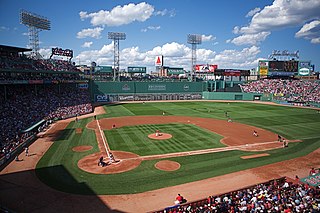
The Ford Model T is an automobile produced by Ford Motor Company from October 1, 1908, to May 26, 1927. It is generally regarded as the first affordable automobile, the car that opened travel to the common middle-class American; some of this was because of Ford's efficient fabrication, including assembly line production instead of individual hand crafting.
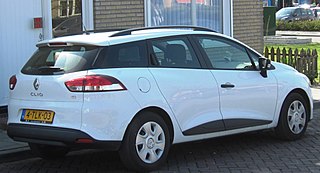
A station wagon is a car body style which has a "two-box design": one for the engine, and the other a passenger area that includes a large cargo area and rear tailgate hinged to open from the back for access to the cargo area. The body style is similar to hatchback cars, however, station wagons are longer, and are more likely to have the roofline extended to the rear of the car to maximize the cargo space.

A convertible or cabriolet is a passenger car that can be driven with or without a roof in place. The methods of retracting and storing the roof vary between models. A convertible allows an open-air driving experience, with the ability to provide a roof when required. Potential drawbacks of convertibles are reduced structural rigidity and cargo space.

A coupé or coupe is a two-door car with a fixed roof. In the 21st century there are four-door cars with a coupé-like roofline sold as "four door coupés" or "quad coupés".
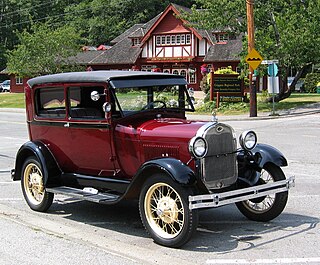
A sedan — also saloon — is a passenger car in a three-box configuration with separate compartments for engine, passenger, and cargo.
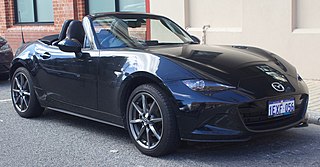
A roadster is an open two-seat car with emphasis on sporting appearance or character. Initially an American term for a two-seat car with no weather protection, usage has spread internationally and has evolved to include two-seat convertibles.

Coupe de ville — also known as town car, sedanca de ville or coupé de ville — is a car body style produced from 1908 to 1939 with an external or open-topped driver's position and an enclosed compartment for passengers. Although the different terms may have once had specific meanings for certain car manufacturers or countries, the terms are often used interchangeably.
Landau, when used in referencing an automobile, generally means a simulated convertible.

Touring car and tourer are both terms for open cars.

A hardtop is a rigid form of automobile roof, which for modern cars is typically constructed from metal. A hardtop roof can be either fixed, detachable for separate storing or retractable within the vehicle itself.

A fastback is an automotive styling feature where the rear of the car has a single slope from the roof to the rear bumper.

A landaulet, also known as landaulette, is a car body style where the rear passengers are covered by a convertible top. Often the driver is separated from the rear passengers with a partition, as per a limousine.
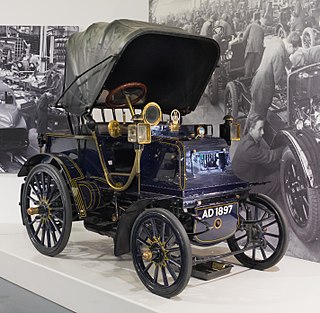
A phaeton is a style of open automobile without any fixed weather protection, which was popular from the 1900s until the 1930s. It is an automotive equivalent of the horse-drawn fast, lightweight phaeton carriage.

Automotive design is the process of developing the appearance, and to some extent the ergonomics, of motor vehicles, including automobiles, motorcycles, trucks, buses, coaches, and vans.

The early history of the automobile can be divided into a number of eras, based on the prevalent means of propulsion. Later periods were defined by trends in exterior styling, size, and utility preferences.

Ponton or pontoon styling refers to a 1930s–1960s car design genre. The trend emerged as bodywork began to enclose the full width and uninterrupted length of a car, incorporating previously distinct running boards and articulated fenders. The fenders of an automobile with ponton styling may also be called Pontoon fenders, and the overall trend may also be known as envelope styling.

The Rambler Six and the Rambler V8 are intermediate sized automobiles that were built and marketed by American Motors Corporation (AMC) from 1956 to 1960.
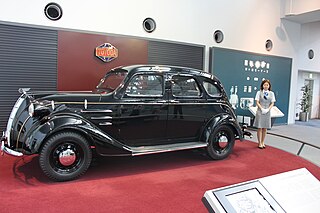
The A1 was the first prototype passenger car built by the company that became Toyota. It was redesigned and put into production as Toyota's first production cars, the AA sedan and the AB cabriolet. These were succeeded by the similar AE, AC and BA sedans.

The Cole Motor Car Company was an early automobile maker based in Indianapolis, Indiana. Cole automobiles were built from 1908 until 1925. They were quality-built luxury cars. The make is a pioneer of the V-8 engine.
